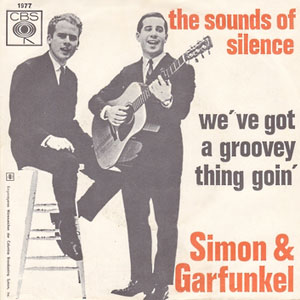Groovy: Difference between revisions
No edit summary |
|||
| Line 31: | Line 31: | ||
[[Category:1960s slang]] |
[[Category:1960s slang]] |
||
[[Category:1970s slang]] |
[[Category:1970s slang]] |
||
* [http://www.funnyordie.com/videos/f8f43a6862/groovin-on GROOVIN’ ON - 70s spoof] |
|||
[[es:Groovy]] |
[[es:Groovy]] |
||
Revision as of 20:49, 27 January 2012
Groovy (or, less common, "Groovie") is a slang colloquialism popular during the 1960s and 1970s, springing out of African American culture. It is roughly synonymous with words such as "cool", "excellent", "fashionable", or "amazing", depending on context.
The word originated in the jazz culture of the 1920s, in which it referred to the groove of a piece of music[1] and the response felt by its listeners. It is a reference to the physical groove of a record in which the pick-up needle runs. It first appeared in print in Really the Blues, the 1946 autobiography of the jazz saxophonist, Mezz Mezzrow.[2] The word appears in advertising spots for the 1947 film Miracle on 34th Street. The term in its original usage had largely vanished from everyday use by 1980.[3]
Starting in the mid-1960s, variations of the word "Groovy" were used in the titles of several popular songs, including:

- "A Groovy Kind of Love," a song written in 1964 by Toni Wine and Carole Bayer Sager, and first popularized a year later by The Mindbenders
- "We've Got a Groovey Thing Goin'", the flip side of the 1965 hit single "The Sounds of Silence" by Simon & Garfunkel
- "The 59th Street Bridge Song (Feelin' Groovy)", a 1966 song by Simon & Garfunkel
- "Somebody Groovy," a song from the 1966 debut album If You Can Believe Your Eyes and Ears by The Mamas & the Papas
- "Groovin','" a 1967 song by the Young Rascals
- "Groovy Grubworm, a 1969 song by Harlow Wilcox
- "Groovy Situation", a 1970 hit song by Gene Chandler
- "Groovy Movies," a song by The Kinks released in 1973 on The Great Lost Kinks Album
- "Groovy Times," a 1979 song by The Clash
The term was also part of the title of a TV program called Groovy Show, which ran from 1967–1970. There was also an American TV cartoon show called Groovie Goolies, which ran from 1970–1972.
It later made its way into the titles of albums, such as Groovy Decay, a 1982 album by Robyn Hitchcock, and Groovy, Laidback and Nasty, a 1990 album by Cabaret Voltaire. Examples of bands names include Groovy Aardvark from Canada, the The Groovy Little Numbers from Scotland, and Groovy Rednecks from the USA.
Marvel Comics produced a Silver Age comic book entitled Groovy, subtitled "Cartoons, gags, jokes". Only three issues were produced, dated March 1967, May 1967 and July 1967.
References
- ^ "The Mavens' Word of the Day". Randomhouse.com. May 5, 1997. Retrieved 2011-04-15.
- ^ "Mezz Mezzrow - Really The Blues". Shades Of Blue. Rhythmandtheblues.org.uk. May 23, 2009. Retrieved 2011-04-15.
- ^ "Groovy - Online Etymology Dictionary". Etymonline.com. Retrieved 2011-04-15.
